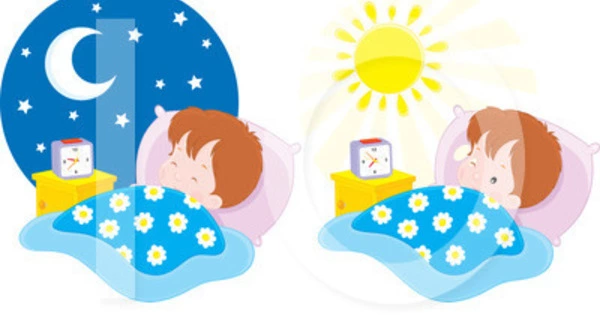Kindergarten is a significant milestone for children and families, who usually prepare by gathering school supplies and meeting the teacher. According to new research, developing a bedtime routine in which children consistently get at least 10 hours of sleep at night is an important way to prepare for the transition to first-time schooling, which will help them adjust during the transition.
Establishing healthy sleep habits before a child starts kindergarten can help them adjust to the demands of school. Children who get enough sleep are better able to focus in the classroom, have more energy for learning and physical activities, and have fewer behavioral problems.
Here are some tips for establishing healthy sleep habits in children:
- Set a consistent bedtime: Stick to a consistent bedtime every night, even on weekends. A regular bedtime routine can help signal to the child’s body that it’s time to sleep.
- Create a sleep-conducive environment: Make sure the child’s bedroom is dark, cool, and quiet, and free from distractions such as electronic devices.
- Limit screen time before bed: The blue light emitted from electronic devices can suppress the production of melatonin, a hormone that helps regulate sleep. It’s best to avoid electronic devices at least an hour before bedtime.
- Encourage physical activity: Regular physical activity can help children feel more tired at bedtime and sleep more soundly.
- Keep them healthy: Encourage healthy eating habits and regular exercise, which helps establish a healthy sleep pattern.
- Flexibility: It’s important to be flexible with the sleep routines, specially when dealing with different ages and children’s special needs
It’s also important to note that the amount of sleep a child needs will change as they grow older. Infants and young children require more sleep than older children and teenagers. If you’re concerned about your child’s sleep habits, or if they’re having trouble sleeping, it’s a good idea to consult with a pediatrician.
Sleep hygiene is the habits we adopt that influence how we sleep. Good sleep hygiene for children should include organized and consistent bedtime routines, limited screen access, and bedtime at or before 9 p.m.
Doug Teti
A team of researchers led by Doug Teti, distinguished professor of human development and family studies, professor of psychology and pediatrics, and head of the Department of Human Development and Family Studies, discovered in a new study published in the journal Pediatrics that, in addition to an easier adjustment to kindergarten, children who sleep at least 10 hours per night on a regular basis demonstrated more success in emotional development, learning engagement, and academic achievement. This was discovered after statistically controlling for family income-to-needs ratios, child health status, and number of school missed days.
The researchers used a movement-tracking watch to track 220 children’s sleep habits over four weeks during their kindergarten year, beginning in July-August before the academic year began. They then measured the children’s sleep habits again in September, November, and April. Along with these tracking periods, teachers and staff assessed students’ transitions to kindergarten.
“We found that children who had 10 or more hours of sleep per night on a regular basis, particularly before the kindergarten year began, tended to maintain that more optimal sleep pattern across their full kindergarten year,” said Teti. “This has significant implications for anyone interested in promoting healthier sleep patterns in children making the transition to first-time schooling; parents should do what they can to help their children regularly get most – if not all – of their sleep during night hours before the school year even begins.”

Researchers used these data to examine the frequency with which the children got at least 10 hours of sleep in a 24-hour period, rather than sleeping only at night. Getting 10 or more hours of sleep in a 24-hour period had no effect on the child’s transition to kindergarten. The findings suggest that “making up” for a lack of sleep at night by taking naps during the day does not help children adjust to school.
The American Academy of Sleep Medicine (AASM) recommends that kindergarten-aged children get 10-13 hours of sleep per day. However, the findings of this study suggest that for children about to begin formal schooling, those hours should be concentrated at night in order to have the greatest impact on a child’s transition to and success in kindergarten.
Teti advises families who anticipate their child starting kindergarten to establish routines and expectations for healthy sleep hygiene even before school begins.
“Sleep hygiene is the habits we adopt that influence how we sleep,” said Teti. “Good sleep hygiene for children should include organized and consistent bedtime routines, limited screen access, and a bedtime at or before 9 p.m.”
Teti advises avoiding screen time, such as television, video games, and tablets, at least 30 minutes before bedtime. He also suggests being involved and present during children’s bedtimes, as well as implementing a consistent calming bedtime routine to help children prepare for sleep. This routine could include taking a bath, reading a book, and talking in a quiet place.
“Good sleep hygiene appears to be beneficial for both young children and adults. Establishing sleep habits before the start of the kindergarten year appears to give children an advantage when making the transition to formal schooling. These are encouraging findings, which we hope to put to the test in a future family intervention study.”
















